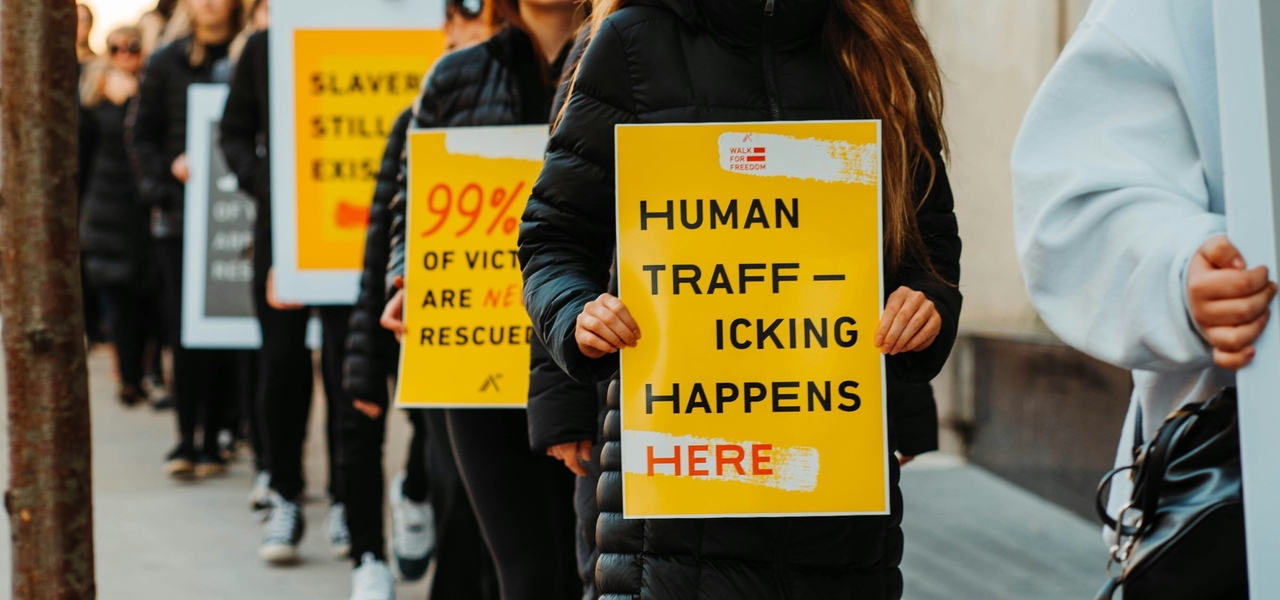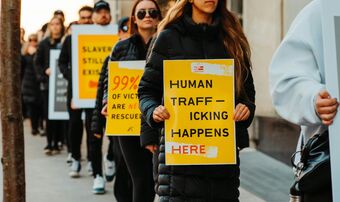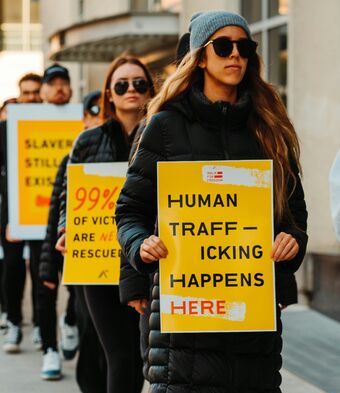1. Human trafficking and people smuggling are not the same thing.
Human trafficking is the recruitment, transportation, transfer, harbouring or receipt of people through force, fraud, coercion or deception, with the aim of exploiting them for profit. People smuggling is a crime that takes place only across borders. It consists in assisting migrants to enter or stay in a country illegally, for a financial or material gain. These two crimes are different. However, in the media and sometimes even in Parliament they are conflated in the discussion about people coming into the country.
2. Modern Slavery is a crime of exploitation, not immigration.
Modern Slavery refers to situations of exploitation that a person cannot refuse or leave due to threats, violence, coercion, deception, abuse of power and other forms of exploitation. It is an umbrella term which covers forced labour, debt bondage, forced marriage, slavery and slavery like practices and human trafficking.
3. The Government has its own process for identifying modern slavery victims.
The National Referral Mechanism (NRM) is a UK-wide framework for referring and identifying potential victims of modern slavery and ensuring they receive the appropriate support. A person cannot self-refer into the NRM; all referrals are made by first responders (eg. police, local authorities, approved charities). Additionally, being identified as a victim of modern slavery does not guarantee the right to remain in the UK.
4. Modern Slavery happens here.
In 2022 16,938 adults and children were referred into the National Referral Mechanism (NRM). Of the 7,019 children referred, 70% were exploited in the UK.
5. UK nationals are victims of modern slavery.
In 2022, 4,185 British Nationals (adults and children) were referred the NRM identified as adult victims and 3,337 child victims. This is 25% of all referrals.
6. A significant number of crossing the channel in small boats are victims of modern slavery.
Approximately 9% of those crossing the channel are being referred into the NRM. In August 2023, the Government reported that between 1 January 2018 and 30 June 2023, 9% of those arriving by small boat claimed to be modern slavery victims. Of these 78% have received a reasonable grounds decision. Of those who have received a conclusive grounds decision, 78% were positive confirming that they are indeed victims of modern slavery.
7. Victims of modern slavery need long-term support to recover from their trauma.
Modern slavery victims are amongst the most vulnerable people in our society. Ensuring that they receive support is important for three reasons:
- It gives victims the best possible opportunity to recover from their exploitation and trauma.
- Without support, victims are vulnerable to re-trafficking and the devastating cycle starts again.
- A victim who is on the road to recovery will be more able to assist the police and prosecutors with the crucial evidence necessary to help identify and convict traffickers, and thereby begin breaking the cycle of exploitation.
8. Failing to identify and support victims of modern slavery means that the UK is breaching its international obligations.
The Government has signed up to a number of international treaties setting out obligations for how to identify and care for victims and prevent exploitation. such as the European Convention on Human Rights (ECHR), the European Convention on Action Against Human Trafficking (ECAT) and the UN Protocol to Prevent, Suppress and Punish Trafficking in Persons. Tackling a global problem demands co-ordinated action at all levels and across all sectors, from legislators, officials, the police, prosecutors, the judiciary and NGOs.
9. Anti-immigration laws may penalise victims of modern slavery
Under the Illegal Migration Act 2023 (IMA), victims who arrive illegally will not be able to receive any support for recovery unless, in limited circumstances, they give evidence in a criminal case. The IMA will result in victims of modern slavery who enter the country illegally (which may often be the case) being detained and returned to their home country or a third country, for example Rwanda. During this time they will be unable to access any support. This will penalise genuine victims of modern slavery and have a negative impact on prosecutions.
10. There are currently few successful convictions of traffickers
Modern Slavery remains a low-risk high profit crime for traffickers. In 2021 there were 93 prosecutions and 33 convictions for modern slavery offences under the Modern Slavery Act 2015.



